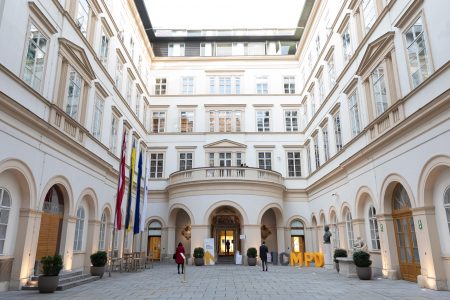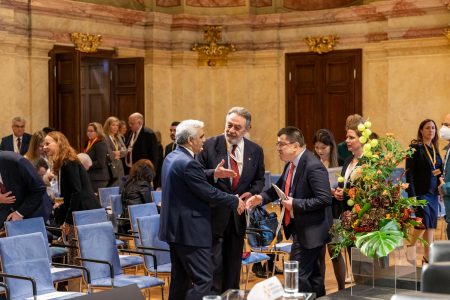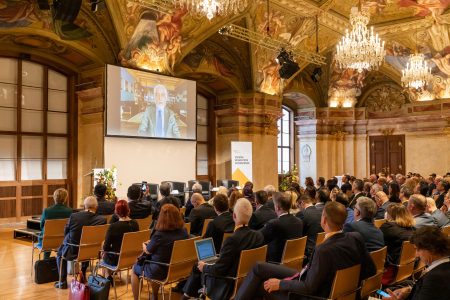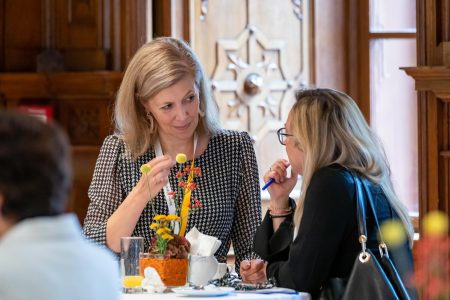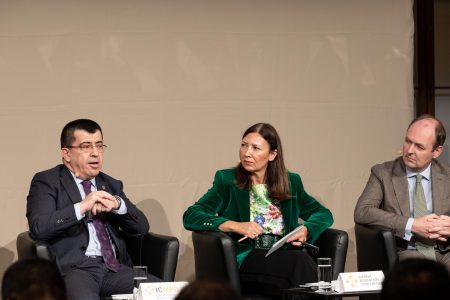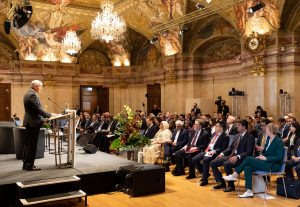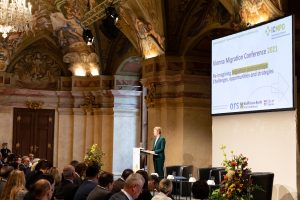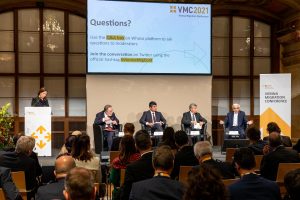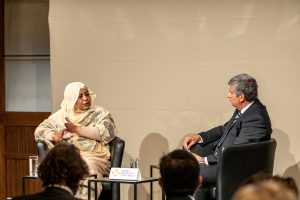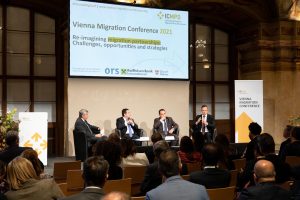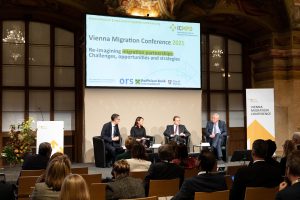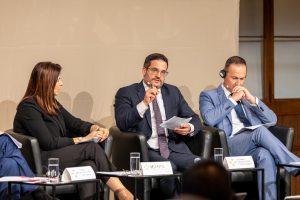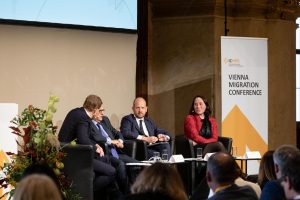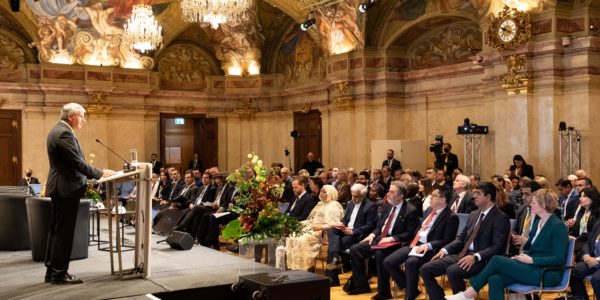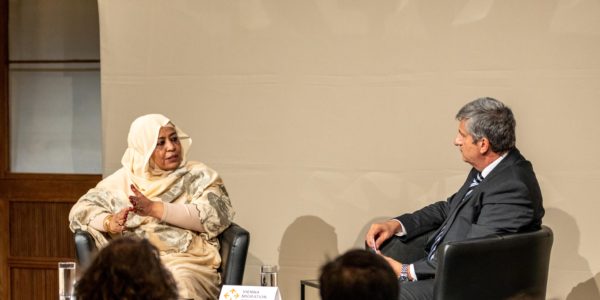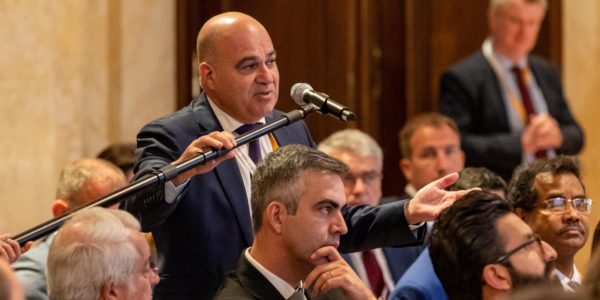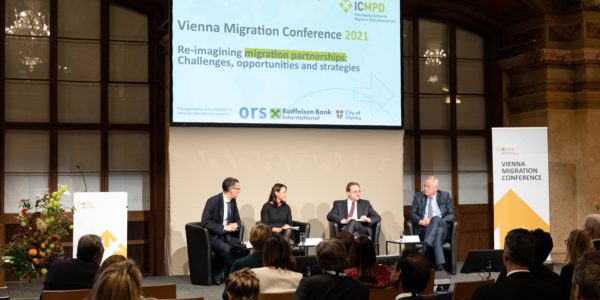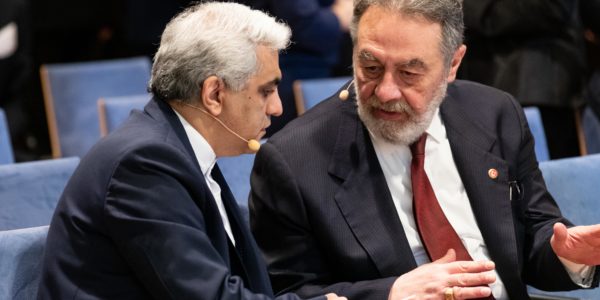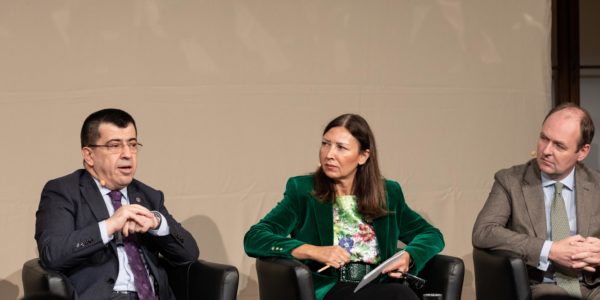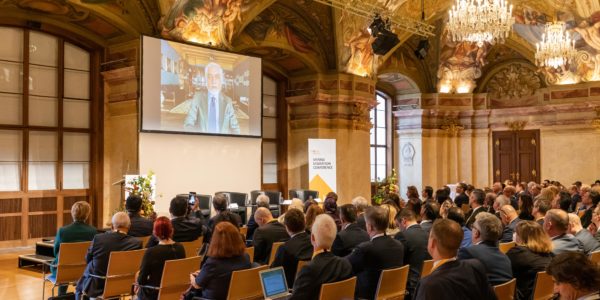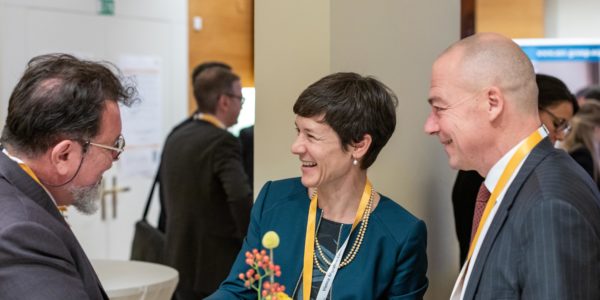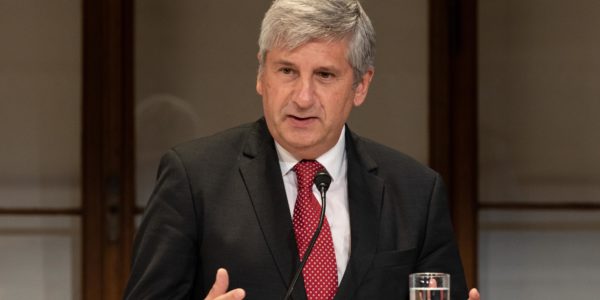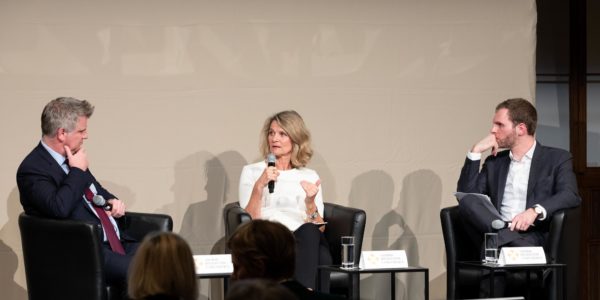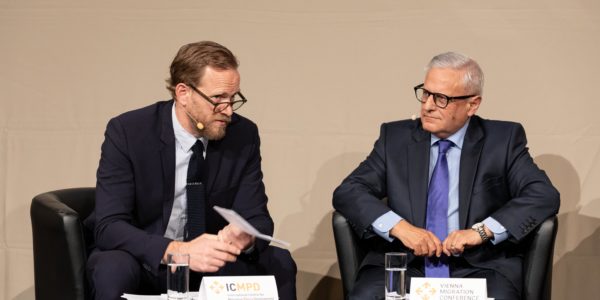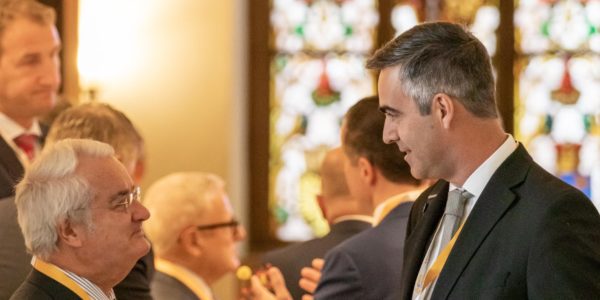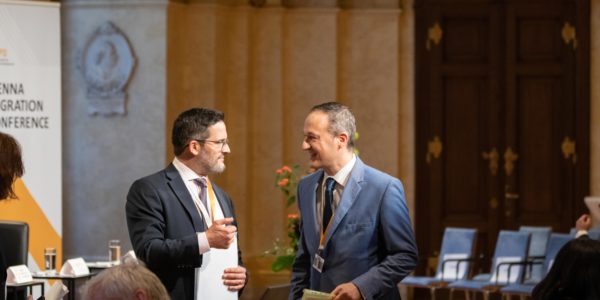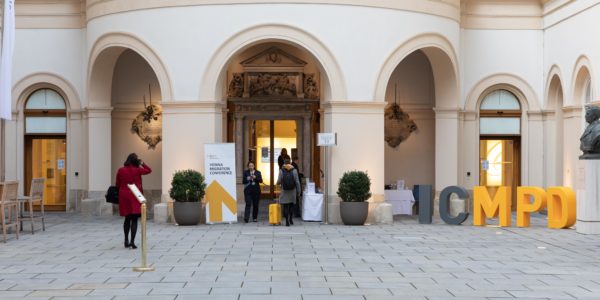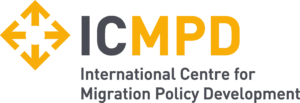Past editions – VMC2021
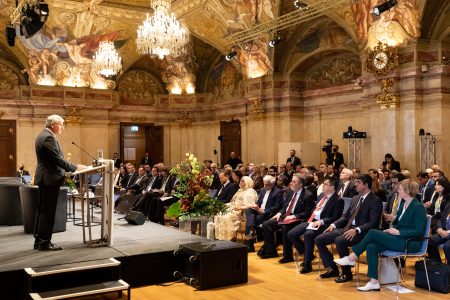
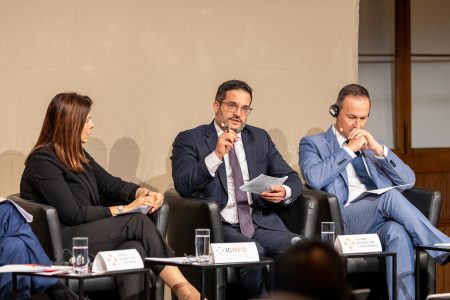
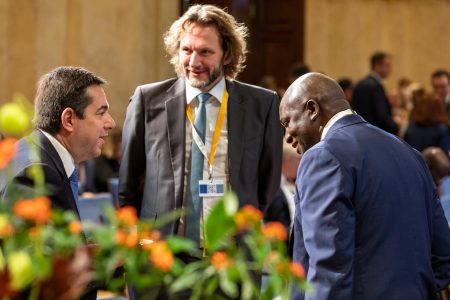

Kevin J. Allen, UNHCR
“By doing the right thing when it comes to having a robust migration management system, but with safeguards and by providing access to asylum to those who may make it to your borders – that sends the right message to Iran and Pakistan.”
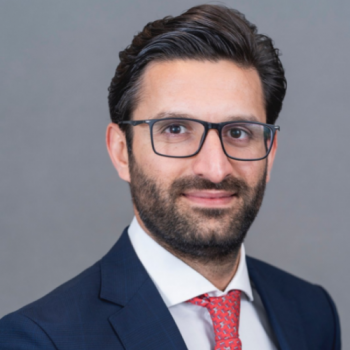
Khyber Farahi, Independent expert
“You can’t expect the families of women who have had new hopes and dreams in the last twenty years to just live in Afghanistan for nothing, for a future that they won’t have, and basically become invisible.”
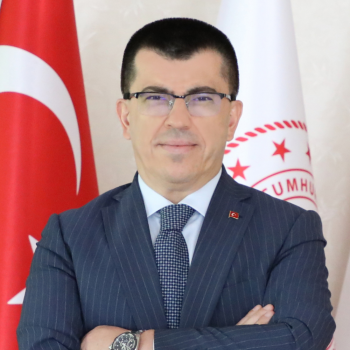
Savaş Ünlü, Turkey
“Burden sharing is not just about providing financial support. That is not a fair understanding. It should also include a working resettlement system. The current one has some deficiencies.”

Ulrich Weinbrenner, Germany
“It is especially important from both a German and EU perspective that we not jump from one crisis to another… but that we have a long-term strategy and follow our strategy because dealing with migration and improving the situation is something that takes extensive effort and that cannot be carried out in just a few years.”
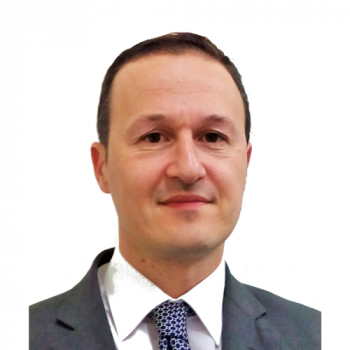
Neville Aquilina, Malta
“We will open the Migration Capacity Partnerships Training Institute in Malta this year. This will give us a way to talk about migration in a similar language with our European and Mediterranean counterparts and engage productively together.”
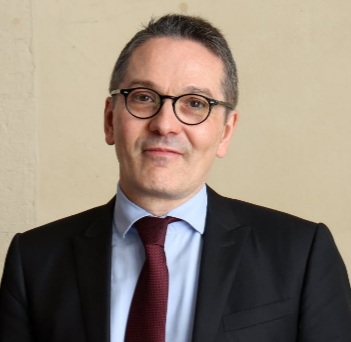
Christophe Léonzi, France
“Cooperation on migration has been strongly impacted by the pandemic and its economic and social consequences… We need to get moving on a constructive path again in a context that was set back by the COVID-19 crisis.”
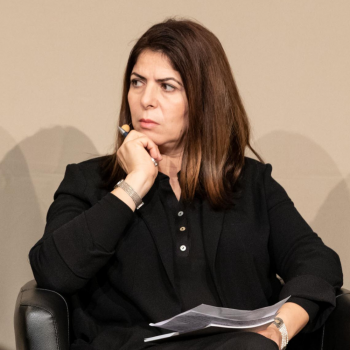
Hamida Rais, Tunisia
“To manage migration better, we need more innovative partnerships. We need modern administration that is able to act quickly in times of crisis and develop effective migration policies.”

Raoul Ueberecken, GSC
“Each time the migration issue comes to the fore, one has the impression that the answer from the Brussels machinery is to draw up another paper. But what leaders want to see is more action.”
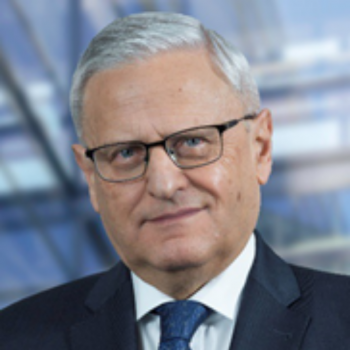
Leo Brincat, ECA
“Although it is not the be-all end-all, an effective and well-managed readmission policy is an essential component to a comprehensive migration policy.”
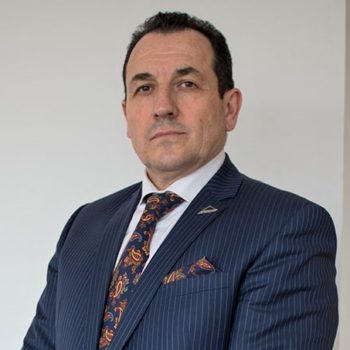
Selmo Cikotić, Bosnia and Herzegovina
“Our part of the world has historical, geographical, cultural and civilizational meaning, linking Europe and Asia. We believe that in terms of migration, we do have a role to play. We are trying to have a more and more comprehensive and better integrated approach with our neighbours.”
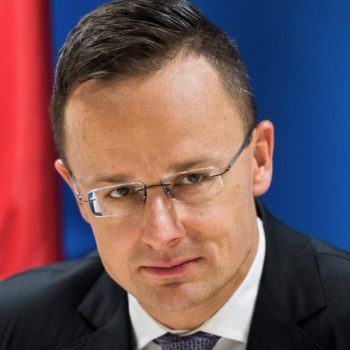
Péter Szijjártó, Hungary
“Our principal position is that we have to bring help where it is needed in order to change circumstances in a way which enables those who have been living there to stay there, rather than being forced to leave.”
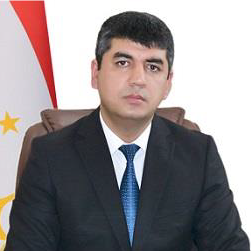
Sharaf Sheralizoda, Tajikistan
“There will be no sustainable development in Central Asia without peace and stability in Afghanistan. Central Asia, therefore, needs to react collectively.”
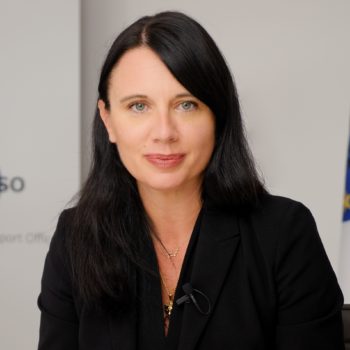
Nina Gregori, EASO
“The European Union Agency for Asylum will be a significant gamechanger, especially when we talk about operations and asylum management in Europe. It will also help with operational capacity building – as an agency we will be able to do and offer more to our partners outside Europe.”
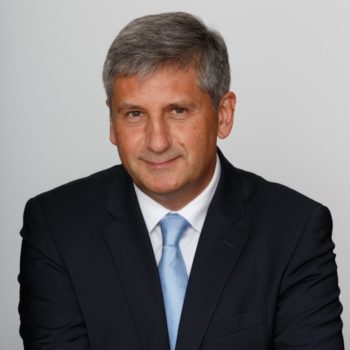
Michael Spindelegger, ICMPD
“Now is the right time to re-energise, re-inforce and re-imagine how we cooperate to manage migration more intelligently and more effectively, especially in a world where increasingly the temptation is to look inward and not outward.”
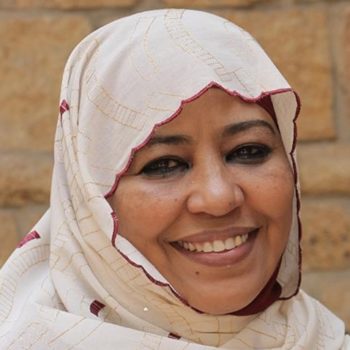
Amira El Fadil, AUC
“Going for bilateral solutions is not helping, because migration is affecting the whole continent of Africa and the whole continent of Europe. I’m proud of the continent to continent dialogue, and we need to make sure that this mechanism is strengthened.”

Karl Nehammer, Austria
“Important elements of migration partnerships are mutual trust and understanding, an intersectoral approach, and flexibility and reactiveness, allowing swift responses to migration challenges.”

Caroline de Gruyter, NRC Handelsblad
“Neutrality, of course, is not the highest good. How can we be neutral when certain values or our good friends are attacked?”
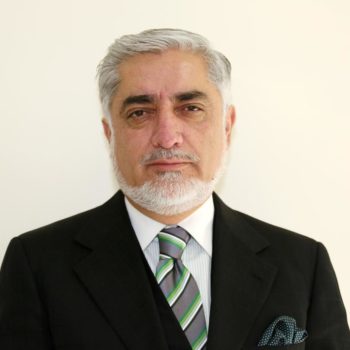
Abdullah Abdullah, HCNR
“I cannot exaggerate the scale of the humanitarian crisis that Afghanistan is currently facing… I am hesitant to encourage anyone to leave the country, but it is also very difficult to convince people not to given the circumstances.”

Monika Sie Dhian Ho, Clingendael Institute
“Emphasis on talent partnerships is a constructive notion in the migration pact. We should not underestimate how important politically it is to have legal pathways in the package and make them work.”
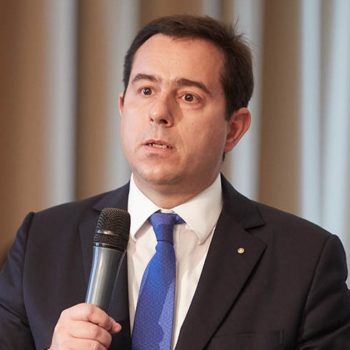
Notis Mitarachi, Greece
“We need to ensure that countries in the neighbourhood do not face undue pressure from the European Union’s stronger stance against illegal migration.”
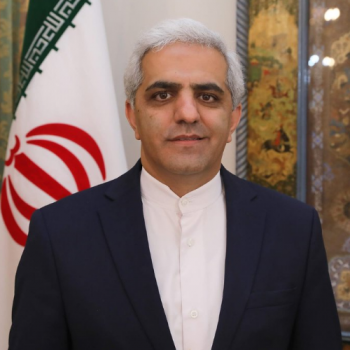
Abbas Bagherpour Ardekani, Iran
“Iran has hosted more than three million Afghans over the past four decades despite the economic cost. This critical juncture makes it difficult for Iran to be in a position to accept more.”
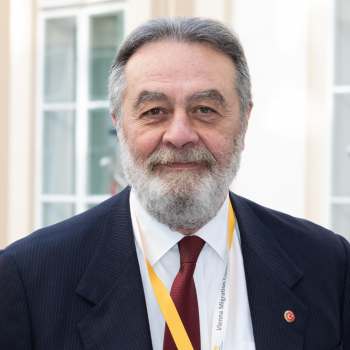
Ahmet Muhtar Gün, Turkey
“The issue of recognition should not prevent the creation of pragmatic channels of dialogue with the Taliban.”

Vincent Cochetel, UNHCR
“We need to start with the recognition that most of the mixed migration is South-South rather than South-North.”

Vladimír Šimoňák, Slovakia
“The IPCR came online and made many of the debates that ministers and even leaders have been engaging in considerably more constructive, much more focused on the actual situation on the ground and not on mutual suspicions between participants.”
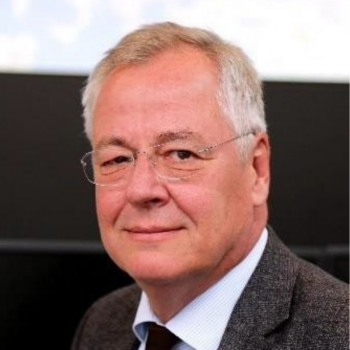
Johannes Luchner, DG HOME
“We need to transition away from the lip service of partnership into actual partnership. For returns, it means providing people opportunity in their home countries… It also means aiding host countries or countries of origin mired by weak administrative capacities.”

Sébastien Lumet, GEG
“The debate on European strategic autonomy is healthy. It matters less what you think about European strategic autonomy than the fact that there is a debate on this issue. These confrontations are healthy because if we can decide together the ends that we want to reach, then we are better prepared to design external means to confront those together.”
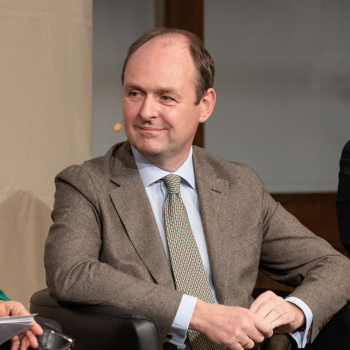
Joost Klarenbeek, Netherlands
“There has got to be international burden sharing. We all have the interest. At the same time, we all have our populations to convince – and that’s true everywhere – but we have to do it together and it has to work both ways.”
Highlights

6 takeaways for re-imagining migration partnerships
By Caitlin Katsiaficas and Justyna Segeš Frelak

Consensus, concession and compromise – taking migration partnerships to the next level
By Martin Hofmann

Committing to partners, staying flexible on the issues
By Sarah Schlaeger and Marissa Weigle
The conference in numbers








